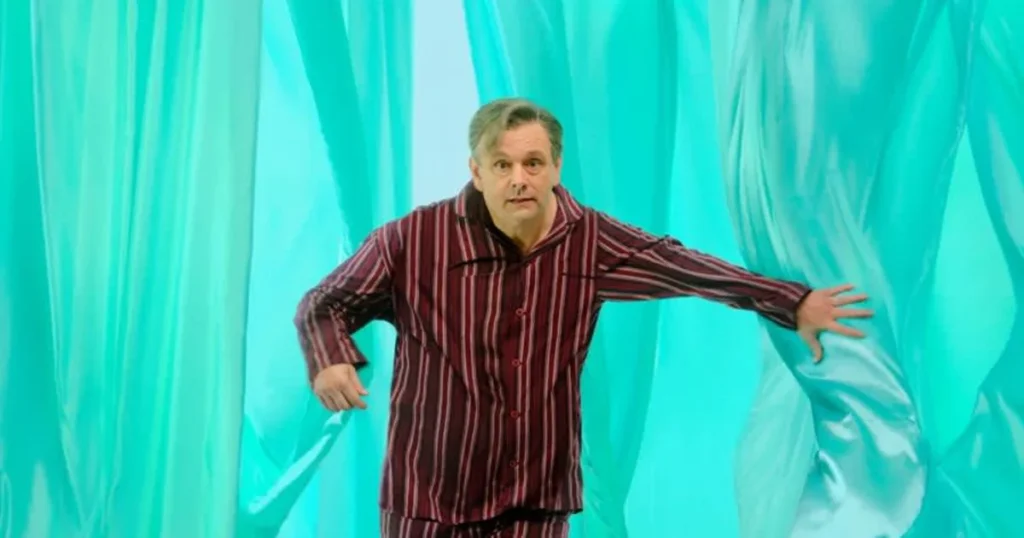Peter Finch wonders whether the world is chattering itself into deafness
It’s early summer, 2010. I’m on the train that runs along the Welsh border, Arriva’s two-car diesel express that connects the north of this country with the south. On it you can travel from Gwynedd to Glamorgan without changing at all. You get five hours of rolling countryside and eight tea trolleys. It’s all interspersed with a flickering of locals who get on at Craven Arms and off again at Ludlow, on at Leominster and off at Abergavenny. It’s a whirl of bags, scarves, and chatter.
I’ve read my meeting papers, keyed in my amendments on my laptop, balancing it on the carriage’s tiny three tea cup table. I’ve read the Western Mail, made notes for the great Welsh novel in my notebook and listened to both Beethoven and Neil Young on my headphones. Right now I’m idling through the content of my smart phone. The signal along the railway leaves a lot to be desired. It’s there, two bars, then one, then gone. Around me youngsters who clearly use a different network are able to converse at ease. I’m with Vodafone, they must be with Orange. When I was with Orange the same thing happened in reverse. This is the great mobile network conundrum.
On the Twitter app which I’ve fiddled with comes the news that the new CEO for the Wales Millennium Centre will be the Barbican Centre’s Mark Taylor. I click onto the BBC’s news website for more information but there’s nothing. Not a word anywhere else either. The world clearly does not know yet. But I do. Twitter – news directly from the place it happens. Smart data snaps flicked up by those at the cutting edge. It makes you feel somehow empowered. But there is a price – the sheer mass of irrelevant dross you have to wade through.
Smartphones have made us garrulous. It’s so easy to write with your thumbs, anything that comes into your head. Barely do you think it than your hands are bumping it down. Blurt, bumble. Smartphones with their virtual keys and super predictive text can almost write your tweets for you. The more we use them the more fluid they become. There are some Tweeters out there who seem never to stop. Follow them and you’ll get data on just about everything they do. Morning, noon and night. Bill Gates in his 1995 classic The Road Ahead predicted something like this. Everything we do will be recorded and everything will be kept. Nothing will ever be unsaid. The world will chatter itself into deafness. Gates didn’t make that last remark, I did. Twitter is my witness.
Do I want to know half the things it tells me? Nope.
“Oh god I’ve got to stop whacking my head on the bunk bed.” “Ah, coffee.” “We stock the full haircare range in our shop.” “Check our new staff list.” “Had a good meeting yesterday.” “Have just got up.” Riveting stuff.
Where Twitter does excel, however, is when it leaks. It works brilliantly when it’s from someone at an event or a meeting you haven’t been invited to and who lets out all the secrets as they appear. “He’s on his feet now and he’s telling us the company is going to close.” “The vote is to allow the project.” “The chairman is a total pain, he’s simply ranting right now.” “The rise will be 2.3%”.
The trick is to follow people who attend the kind of things in which you are interested. Political commentators are best – Vaughan Roderick, Adrian Masters, and Rhun ap Iorwerth are all worth spending time with. “What is it about Welsh politicians and martial arts? We’ve had Lembit wrestling and David Davies boxing. What next – Kung Fu Carwyn?” That’s Vaughan Roderick. Adrian Masters gives us the meeting detail blow by blow and then follows it up with a load of information on the music he’s currently listening to. Click on their links and you get the agendas and all the background. They are miniature unregulated radio stations that get into places that traditional media often does not. Thank god for their willingness to speak.
At the heart of officialdom most politicians, company leaders and other grey field public figures have realised (or been told as much by their press officers) that they should join the Twitter revolution. Councillors, Chief Executives, Directors. Even the Pope has done this, although he’s yet to say very much. Our leaders tweet to order. From the sound of it they often delegate responsibility to their aides. “Had an excellent meeting with the Safety Committee.” “Equality and fairness is a fundamental right for all people”. “Remember to clear up after your dog”. You follow them for a while in case they have something of import to say or in case they show you something of their private sides. When they don’t you give up.
But not everyone follows their organisation’s official lines. Sally Bercow, wife of the Speaker, is already famous for tweeting too wildly. The former Tory MP Louise Mensch could regularly be relied on for gems of insight leavened with common concern. Although now she’s moved to America and taken to tweeting on the doings of the Republican party she’s nothing like as much fun.
Twitter can get you into severe trouble when you use it to make comments in the way you might when sitting with friends in a pub. Unlike bar chatter Twitter is both public and permanent. What you say through it stays and can be tracked. It’s a half-way house between what’s inside your head and the national news. It is so easy that many forget how public Twitter is and blast on with unconsidered, salacious, and often defamatory comments.
We love this, of course. We want to be there when people overstep the mark, make fools of themselves or show sides that should actually remain hidden. Sally Bercow stepped back from tweeting for a while after reportedly naming a girl at the centre of a child abduction case only to get herself into further trouble over the false identification of the Tory Peer Lord McAlpine as a paedophile. Unbowed she dug herself even deeper by accusing the Peer’s lawyers of being “big bullies” and “Ambulance chasers”. “Proud mum, proud wife, unashamedly opinionated woman,” is how she describes herself in her Twitter profile. And she’s certainly correct about some of that.
Here in Wales Plaid AM Bethan Jenkins briefly left Twitter after being accused of “destabilising the Northern Ireland peace process” following a tweet in which she described Martin McGuiness as “totally naïve” for agreeing to shake hands with the Queen. Caerphilly county councillor Colin Elsbury had to pay damages to a fellow councillor seeking re-election. Elsbury falsely claimed that Eddie Talbot had been removed by police from a polling station during a by-election in 2009. The court ordered that Elsbury pay Talbot £3,000 plus legal costs and to make a public apology using the medium that had got him into trouble in the first place – Twitter.
Nine people, including 18 year old Gemma Thomas from Rhyl, have been ordered to pay compensation for naming a rape victim in the recent Ched Evans case. There are many other examples of similar indiscretions. We are clearly not yet up to speed on how all this works. Information is dangerous stuff. Twitter makes it so phenomenally easy to manipulate. Your message reaches your followers at the speed of thought.
Back on the train, a different train this time but still running along the same Wales defining railway, I’m reading tweets from those I follow simply for entertainment. Try these from Wales Arts Review’s Gary Raymond (@GaryRaymond):
In one of his first statements since landing on planet earth, Chris Grayling states that violent knife crime will result in punishment. Wow.
If Berlusconi had been British he’d have been in the House of Lords by now and the trial would never have happened.
Ha! BBC just said Cameron is “intellectually” against reform. That’ll be the first intellectual day trip Cameron’s brain has had since Eton.
Or these from Elizabeth Windsor’s hilarious series of spoof announcements from the Palace (@Queen_UK):
Ed Miliband on the phone, worried about Facebook being down. Thankfully he’s got the numbers of his five friends in his phone too.
X Factor fancy dress party at the Castle. Camilla thought one said “Max Factor fancy dress” and came as a lipstick. Awkward.
Freezing cold. Pissing with rain. Seriously considering ruling somewhere else for the winter.
It’s Charles’ Birthday today. He asked one not to spend too much on a present so one bought him Italy.
Why shouldn’t information be fun.
At ClickonWales the IWA (@IWA_Wales) celebrates more than 5,000 followers. That’s a decent number. When I checked this morning the Institute had made 1976 tweets which means someone on staff is actually thinking about the new media. The problem for me is that most of IWA’s tweets are merely links to existing online articles or consists of urgings to resubscribe or to attend Institute dinners and conferences. Fine enough but that shouldn’t be all. What I’d like to see is something that offers less balance and more opinion. Something replete with the personality of the person creating the tweet, edgy, readable and engaging, a thing to keep me coming back. After all Twitter could be what we end up left with after the Western Mail falls, as someday soon is surely must. We need to ensure that among us we have enough of the right kind of tweeters to carry on.






Re: Colin Elsbury tweet, what Peter doesn’t mention is that although the fine was £3,000 the legal costs amounted to tens of thousands of pounds in addition the fine.
Tweeting wrongly/mistakenly can be a very expensive hobby
Thank you, Peter, for reminding us about the railway journey along the border. It’s not as spectacular as traveling through the Alps, but is full of surprises when you lift your gaze from the screen which is either on your lap or in one’s hands.
Some of us, alas, may not become Tweeters. However, a social media consultant I know, and who read your article, agreed with your advice about Tweeting, especially the final paragraph. Personality, edge and readability are excellent criteria for the ideal Tweet – and I would add cynghanedd to make it more challenging and thought-provoking.
Ken,
Here goes…
Make your Tweet meet and greet, the great ‘Cynghannedd’ said,
To evoke and thought provoke, using musings both sought and read
‘Singing in chains’ the rhyme-ringing Tweeter’s timely thoughts gain
Assonance, nuance and meter; substance wrought fine for our brain
David,
You made my day and reinforced Peter’s advice.
Diolch yn fawr.